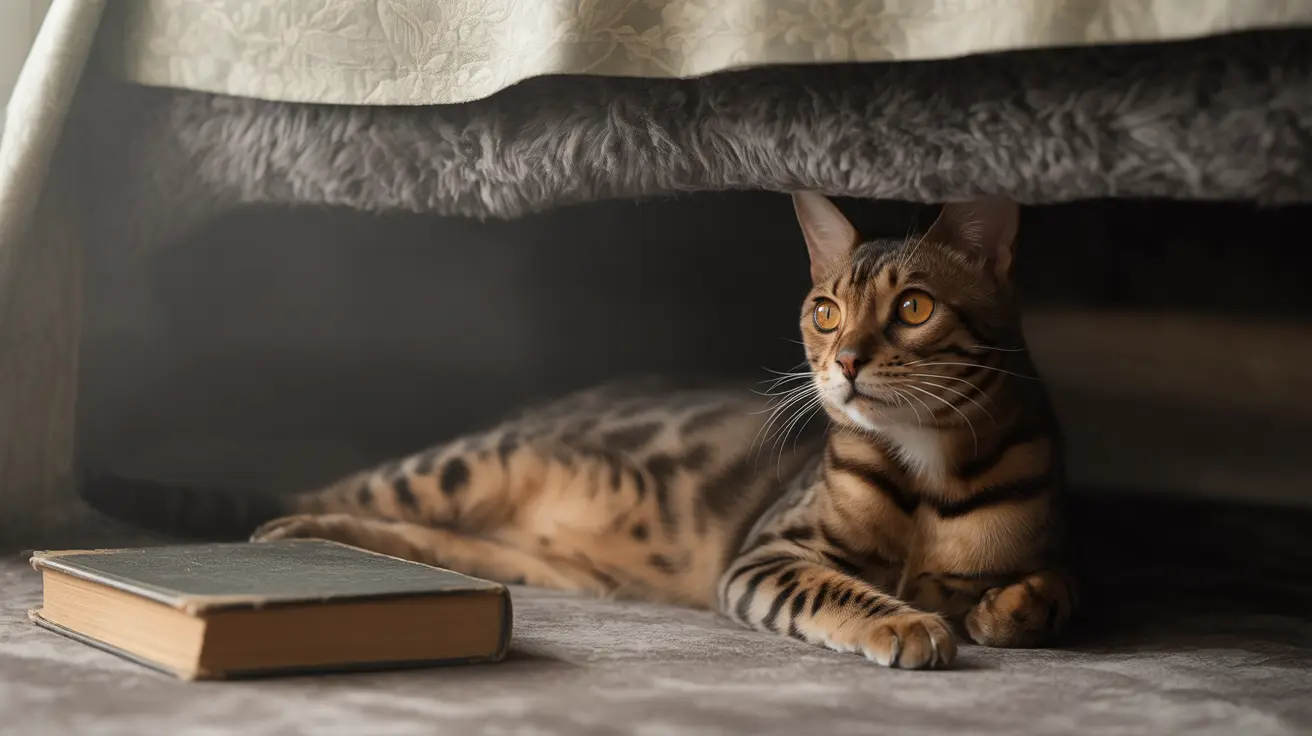If you've ever wondered why your feline friend chooses the space under your bed as their preferred sleeping spot, you're not alone. This common behavior has deep roots in both feline instinct and environmental factors. Let's explore the fascinating reasons behind this behavior and what it means for your cat's well-being.
Understanding why cats sleep under the bed can provide valuable insights into your pet's physical and emotional health, helping you create a more supportive environment for their needs. From natural instincts to comfort-seeking behavior, there are several key factors at play.
Safety and Security: A Natural Instinct
Cats are both predators and prey animals in nature, which strongly influences their choice of sleeping locations. The space under your bed provides a perfect combination of shelter and surveillance opportunities.
This enclosed space offers protection on multiple sides while allowing your cat to monitor their surroundings through the open side. It's similar to how wild cats would seek out protected dens or burrows for rest and safety.
Temperature and Comfort Considerations
The area under your bed often maintains a consistent, comfortable temperature. During winter months, this space can be warmer than exposed areas of your home, while in summer, it offers a cool retreat.
Additionally, the enclosed nature of the space creates a cozy den-like environment that many cats find naturally appealing. The pressure of the bed above can create a sense of security similar to what cats experience in purpose-built cat caves or carriers.
Stress and Anxiety Management
For many cats, retreating under the bed serves as a crucial stress-management strategy. Common triggers that might send your cat seeking this safe space include:
- Loud noises or sudden sounds
- New people or pets in the home
- Changes in household routine
- Unfamiliar situations or environments
When to Be Concerned
While sleeping under the bed is typically normal behavior, sudden changes in your cat's hiding habits might indicate underlying issues:
- Unusual prolonged hiding
- Decreased appetite or thirst
- Changes in litter box habits
- Signs of lethargy or illness
If you notice any of these signs, it's important to consult with your veterinarian to rule out potential health concerns.
Creating Alternative Safe Spaces
If you prefer your cat not to sleep under the bed, consider providing alternative comfortable hiding spots:
- Covered cat beds or caves
- Elevated perches with partial covering
- Quiet corner spaces with soft bedding
- Cat trees with enclosed areas
Frequently Asked Questions
Why does my cat sleep under the bed instead of in a cat bed or on my lap?
Cats choose to sleep under the bed because it provides a natural sense of security and comfort. This behavior stems from their instinct to seek protected spaces for rest, similar to how wild cats use dens. The enclosed space offers both physical and emotional comfort.
Is it normal for my cat to hide under the bed all the time, or could it be a sign of stress or illness?
While occasional under-bed sleeping is normal, constant hiding might indicate stress or health issues. If your cat's behavior changes suddenly or they spend excessive time hiding, consult with your veterinarian to rule out medical concerns.
How can I help my anxious cat feel safe without always hiding under the bed?
Create alternative safe spaces throughout your home, maintain consistent routines, and use calming aids like pheromone diffusers. Gradually help your cat build confidence through positive experiences and gentle encouragement.
Should I block my cat's access under the bed, and are there better alternatives for a safe hiding spot?
Before blocking access, ensure you provide suitable alternatives like cat caves, covered beds, or quiet corner spaces. If you decide to block the space, do so gradually while introducing new hiding spots to avoid causing additional stress.
What does it mean if my cat suddenly starts sleeping under the bed after a change in the household?
Sudden changes in sleeping location often indicate your cat is responding to environmental stress or changes. This could be due to new pets, visitors, household modifications, or other disruptions to their routine. Give them time to adjust while maintaining their normal routine.
Conclusion
While it may seem concerning when your cat chooses to sleep under the bed, this behavior is usually perfectly normal and rooted in their natural instincts. By understanding the reasons behind this preference and monitoring for any concerning changes, you can better support your cat's needs and ensure their well-being.






